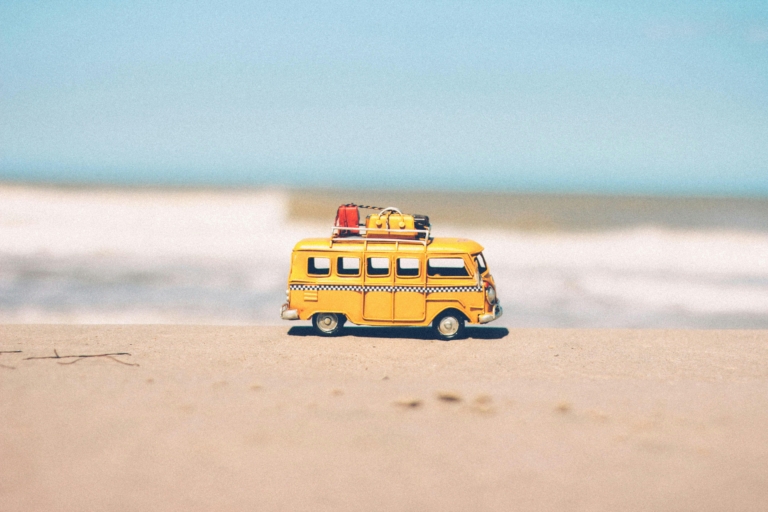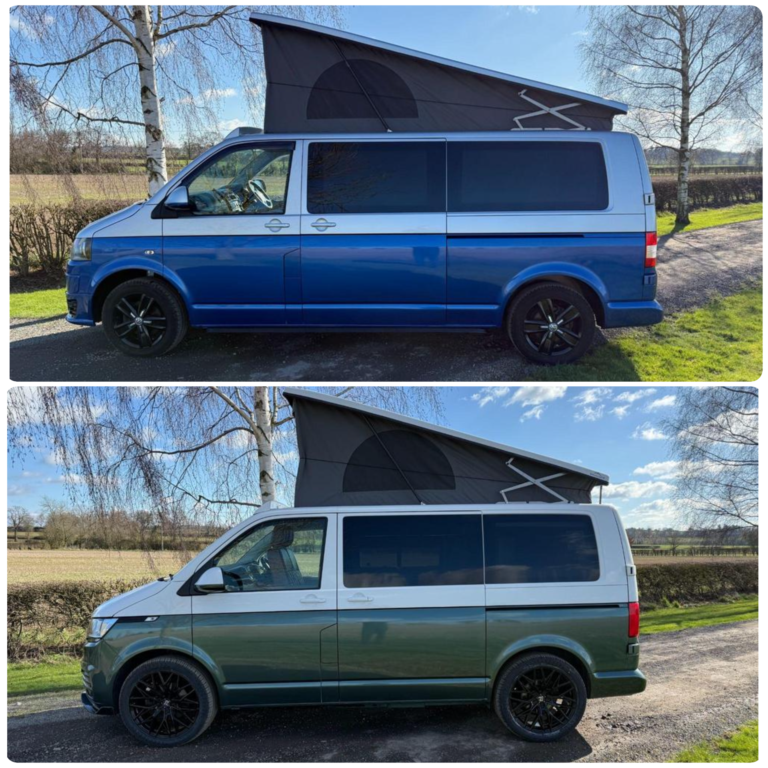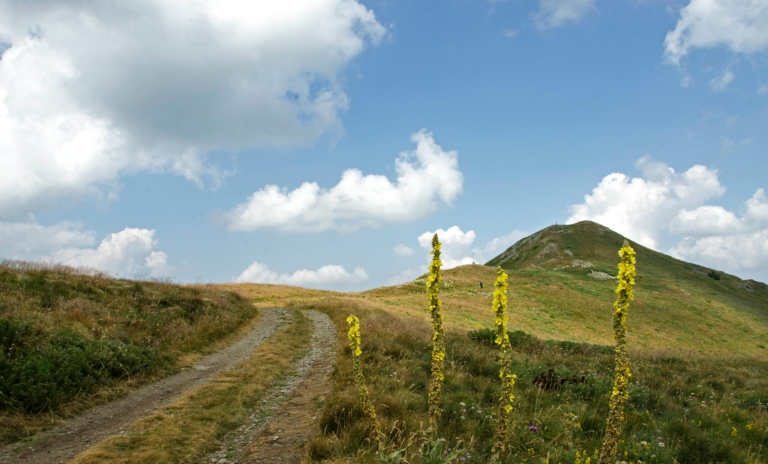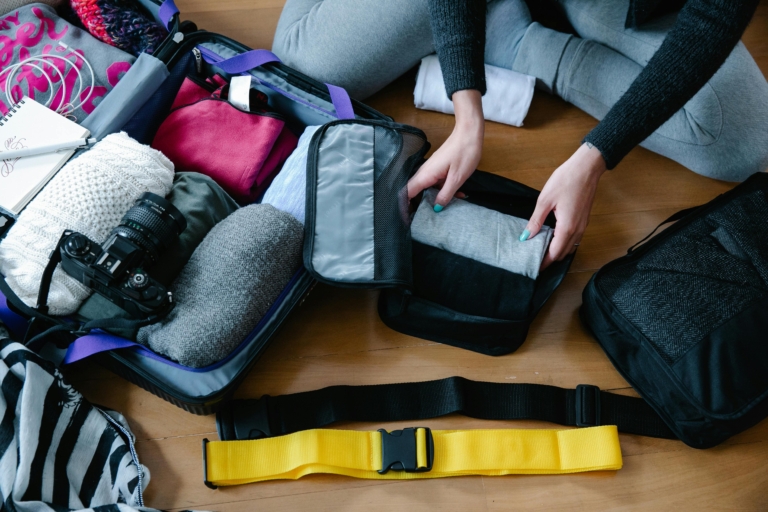With the cooler weather and shorter days approaching us, it’s essential to prepare your campervan for the changing seasons. Proper maintenance ensures that your van is in top shape for the colder months ahead and makes winter travel more enjoyable and safe.
Here are our top tips:
1. Inspect and Maintain Your Van’s Exterior
Check Your Tyres
- Tyre Tread and Pressure: Cold weather can cause tyre pressure to drop, so check and adjust your tire pressure regularly as the temperature falls. If you’ll be travelling to snowy or icy regions, consider investing in snow tires or all-terrain tires for better traction.
- Inspect Tyre Tread: Ensure your tires have enough tread for safe driving on potentially slippery roads. Bald or worn tires can be dangerous, especially when driving through rain or snow.
Seal Windows and Doors
- Inspect Seals: Cold air can sneak in through gaps in your van’s windows and doors. Check the rubber seals for cracks or wear, and replace them if necessary to ensure a tight seal.
- Use Weatherstripping: Add weatherstripping to your windows and doors to prevent drafts and heat loss.
Inspect and Clean the Roof
- Check Roof Vents: Make sure all vents, including your fan or roof hatch, are properly sealed. Fall leaves and debris can clog roof vents, so clean them out to ensure proper airflow.
- Check for Leaks: Look for any signs of leakage around your roof or skylights, especially before winter storms roll in. Use a waterproof sealant to patch up any cracks.
2. Prepare Your Heating System
Test Your Heater
If your van has a built-in heating system (like a diesel or propane heater), Autumn is the perfect time to give it a full test. Make sure it’s in good working order and that all fuel lines are clean and leak-free.
- Backup Heating: For added comfort, consider a portable propane heater or electric heater, especially if you’re staying in colder areas for extended periods. Just be sure to follow all safety instructions, and always ventilate properly to avoid carbon monoxide buildup.
Insulate Your Van
Proper insulation is key to staying warm and comfortable during colder months. Here’s what you can do:
- Insulate Windows: Use reflective insulation (such as Reflectix) on your windows to keep the heat inside. You can cut panels to fit each window, which can easily be removed during the day for natural light.
- Insulate Floors and Walls: If your van isn’t already well-insulated, consider adding insulation to the walls and floors. Foam board or spray foam are popular options for DIY insulation.
- Curtains or Thermal Blinds: Install thick curtains or thermal blinds to reduce heat loss through windows and provide extra privacy.
3. Protect Your Water System
One of the biggest concerns for campervan owners in the fall and winter is preventing the water system from freezing. Frozen pipes can burst, leading to costly repairs and inconvenience.
Drain Water Tanks
- Freshwater Tank: If you’re storing your van for the winter, make sure to completely drain your fresh water tank, as any remaining water can freeze and damage the tank.
- Gray and Black Tanks: Drain and clean your grey and black water tanks. You don’t want any leftover waste or water freezing inside during cold spells.
Install Tank Heaters
If you plan to keep using your campervan in colder weather, invest in tank heaters to prevent water from freezing in your fresh, grey, and black tanks. These are especially helpful if you’re travelling in subzero temperatures.
Use RV Antifreeze
For van lifers storing their campervans over the winter, running RV-specific antifreeze through your plumbing system can help prevent damage to your pipes, valves, and tanks. This antifreeze is non-toxic and safe for your water system.
4. Electrical System Check
Battery Care
As temperatures drop, your van’s battery will have to work harder, and cold weather can reduce its efficiency.
- Test Your Batteries: Check the health of both your starter and house batteries. If you’re using lithium batteries, remember that they can’t charge properly in extremely cold weather without a heater. AGM batteries perform better in cold conditions but still require extra care.
- Battery Insulation: If you plan on camping in very cold temperatures, consider adding battery insulation or installing a battery heater to ensure your batteries stay functional.
Solar Panel Efficiency
Solar panels can still provide power in the winter months, but their efficiency drops with shorter daylight hours and potential snow coverage.
- Clean and Check: Clean your solar panels regularly to ensure they aren’t covered in dirt or snow, and check the wiring and mounts to make sure everything is secure.
Generator Backup
If you rely on solar power but anticipate long stretches of cloudy days, a portable generator can provide extra power when sunlight is scarce.
5. Essential Gear for Cold Weather Van Life
Winter Survival Kit
It’s always a good idea to have a winter emergency kit in your campervan, especially if you’re travelling to remote areas where help might be far away.
What to include:
- Extra blankets or a heavy-duty sleeping bag
- Ice scraper and snow shovel
- Roadside emergency kit (jumper cables, flares, first aid kit)
- Flashlight or headlamp with extra batteries
- Non-perishable food and extra water
- Extra layers of warm clothing
Tyre Chains
If you’re heading to areas with heavy snowfall, it’s worth investing in a good set of tire chains. Keep them handy in case you encounter icy or snow-covered roads.
Portable Dehumidifier
Cold weather can cause condensation inside your van, leading to dampness and mold. A small portable dehumidifier can help keep moisture levels in check.
6. Winterising for Storage
If you’re planning to store your campervan for the winter rather than use it, proper winterising is essential to keep your van in top shape.
Clean and Empty
- Empty Water Systems: As mentioned earlier, drain and clean all water tanks and run RV antifreeze through the system if necessary.
- Clean the Interior: Deep clean the inside of your van, including wiping down surfaces and vacuuming to prevent mold and mildew buildup. Don’t forget to remove any perishable food items from the fridge or cupboards.
Disconnect and Charge Batteries
- Disconnect House Batteries: If your van will be parked for an extended time, disconnect the house battery to prevent it from draining. You can also remove the batteries entirely and store them in a warmer environment to prolong their life.
- Trickle Charge: Use a trickle charger to maintain your vehicle battery’s charge if your van will be stored for several months.
Cover Your Van
- Protect the Exterior: A high-quality cover can protect your campervan from the elements if it’s parked outdoors. Look for covers that are weather-resistant and breathable to prevent moisture buildup underneath.
We hope this helps keep you safe and warm this autumn/winter. Happy Camping!
